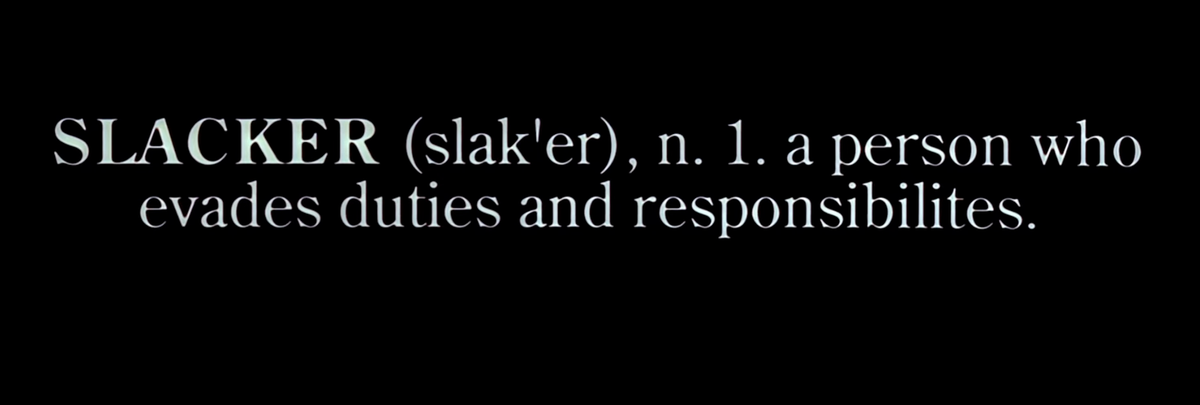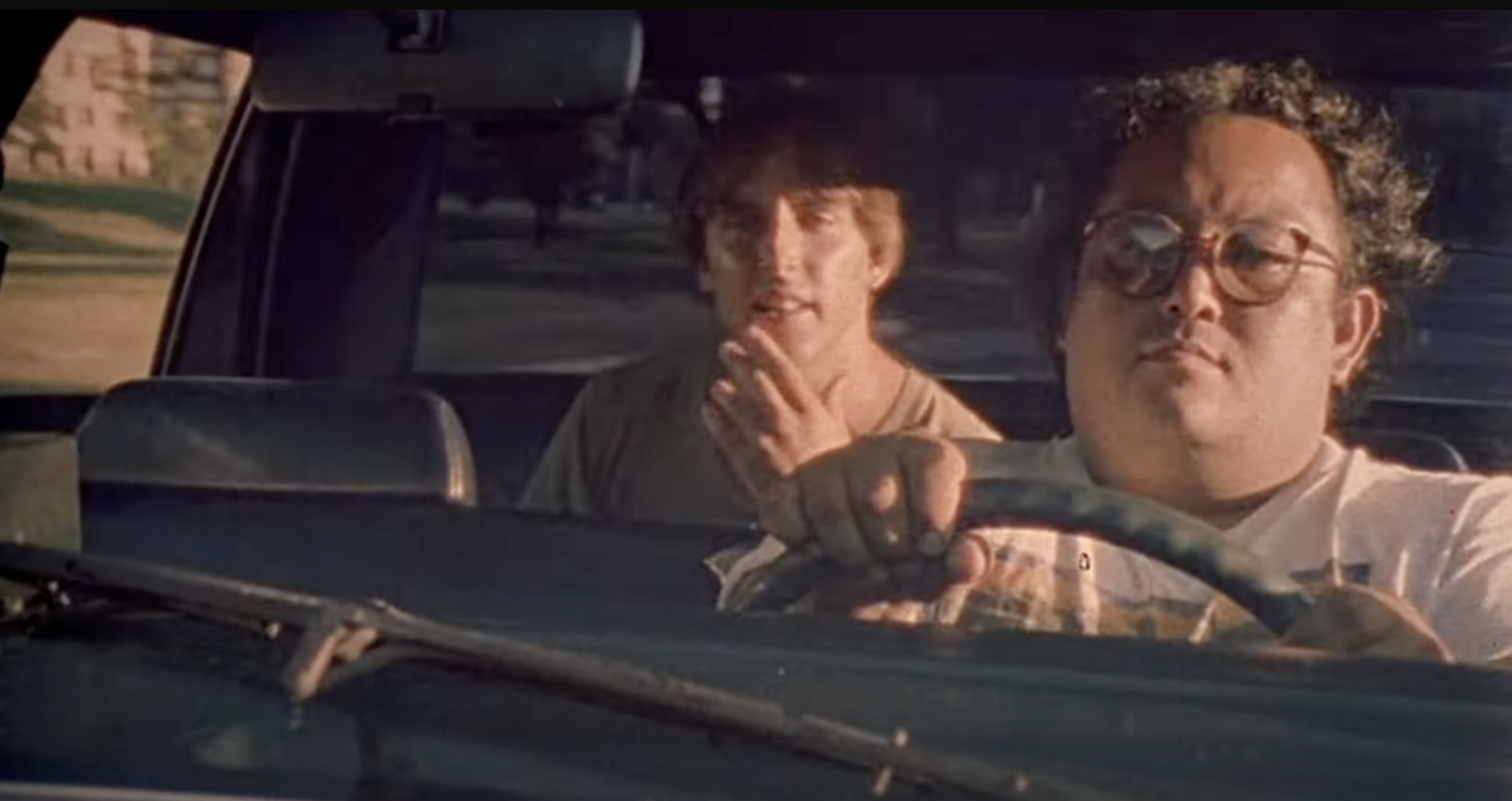(slak'er), n.

I've been feeling like a slacker. Even doing shorter newsletters over the summer, I've still managed to miss two out of the last three Thursdays. On top of that, up until today, I have not seen the movie Slacker (Dir. Richard Linklater) from 1989. So... I've been slacking. Thanks to a recent bout of insomnia, I've been able to watch some movies in the early morning hours. Today, I finally stopped slacking and watched Slacker and now I'm shrugging off my slacking tendencies by writing about it.
It is by one of my favorite directors, Richard Linklater, and I'm surprised it has taken me this long to give it a watch. He's made other commercial and artsy films you may or may not know. A few of his films are some of my favorites, Before Sunrise comes to mind. Slacker is his first film. This old trailer can catch you up if you haven't seen it before:
Slacker (Dir. Richard Linklater, 1989)
And that's pretty much it for 97 minutes. Though there have been many imitators since it premiered, like The Simpsons episode "22 Short Films About Springfield", at the time it was something new. Onscreen, the director lays out the treatise of the film in the first few minutes (in the trailer above, too).

The resulting film is incredibly watchable. There's a droning on that captivates a viewer. Twenty-somethings move through Austin, Texas, in the late-eighties and we listen in on their conversations, but we never get drawn in or follow the drama and plot of their lives. Each instance, each scene, each character could be its own film, but that isn't the point. We're being shown a vibe, a scene (a social scene, not a film scene). It's like the camera becomes the slacker, taking the easy root by moving on to the next thing instead of engaging with any one thing or getting too attached to a character.
From Roger Ebert's original review –
In a conventional Hollywood movie, as the brain-dead characters repeat the few robotic phrases permitted them by the formulas of the screenplay, they walk down streets and sometimes I yearn to just peel away from them, cut across a lawn, walk through the wall of a house, and enter the spontaneous lives of the people living there. “Slacker” is a movie that grants itself that freedom.
What's striking now is the thought that this film couldn't, or wouldn't, be made today. It meanders. It doesn't tell you what to think or where to look. And there are no smartphones in the film. The characters must search their brains and their environs for what to do, for what to pay attention to, for what to discuss.
It's not a perfect film – we see a boom mic or two, a camera shadow – but something mesmerizing coalesces from just pointing the camera over and over again into different places and letting things unfold before it. It never feels like anyone in the film is truly acting either. It's authentic and refreshing and I'm glad I watched it in 2025, when everything nowadays seems to strive harder and harder to be authentic and "true" while getting further and further from that in the process, take AI Influencers for example.
So maybe I shouldn't beat myself up for slacking. Maybe we should all slack a bit more in this day and age. Maybe that's the antidote to streaming, algorithms, tech, and the like. I should know, I'm a medical doctor.*
* I'm really not. It's a quote from the movie.
indoor animal is curated by a human: Tim Papciak. On Mondays, he shares one link to one music video to help spark creativity in himself and in other creative types. On Thursdays, he recommends a book, movie, show, art piece, or link to some dusty corner of the internet that he believes either 1.) adds to the human experience, or 2.) serves as a coping mechanism in the year 2025. Note: this is not, and never will be, self-help content.